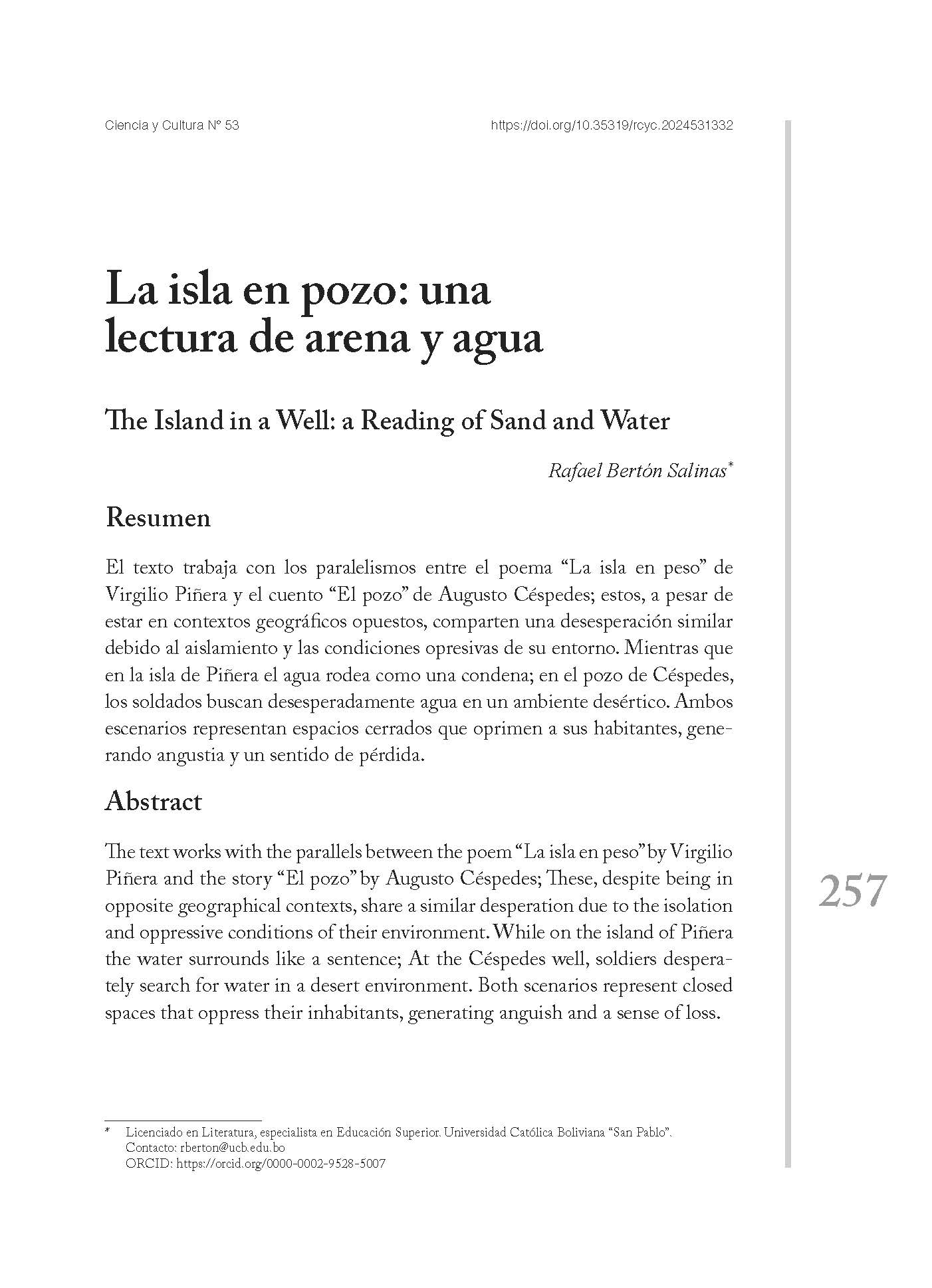The Island in a Well: a Reading of Sand and Water
DOI:
https://doi.org/10.35319/rcyc.2024531332Abstract
The text works with the parallels between the poem “La isla en peso” by Virgilio Piñera and the story “El pozo” by Augusto Céspedes; These, despite being in opposite geographical contexts, share a similar desperation due to the isolation and oppressive conditions of their environment. While on the island of Piñera the water surrounds like a sentence; At the Céspedes well, soldiers desperately search for water in a desert environment. Both scenarios represent closed spaces that oppress their inhabitants, generating anguish and a sense of loss.
Downloads
References
Abellán, I. (2011). “Las metamorfosis en isla: Ovidio y Virgilio Piñera, lucha constante entre el odio y el amor”. Tonos digital: revista de estudios filológicos (Número 21). https://www.um.es/tonosdigital/znum21/secciones/estudios-1-ovidio.htm
Céspedes, A. (1936). Sangre de mestizos. Santiago: Nascimento.
Piñera, V. (1943), La isla en peso. https://edisciplinas.usp.br/pluginfile.php/8370756/mod_resource/content/1/Virgilio%20Pi%C3%B1era%20%20La%20isla%20en%20peso.pdf
Sequeda, Y. (2008): Virgilio Piñera: ¿un “poeta ocasional?: Acercamiento a su poética mediante el análisis estilístico. Cuba: UCLV, Facultad de Ciencias Sociales.

Downloads
Published
How to Cite
Issue
Section
License
Copyright (c) 2024 Revista Ciencia y Cultura

This work is licensed under a Creative Commons Attribution-NonCommercial 4.0 International License.








